Abstract
The level of intracellular free chloride in Aplysia giant neurons can be made to decline by pretreatment with 50 mM NH4+ solution followed by washing with 10 mM HCO3-/0.4% CO2-containing fluids. This effect can be completely blocked by the anion flux inhibitor, 4-acetamido-4'-isothiocyano-stilbene-2,2'-disulfonic acid (SITS). The net change of free chloride in the cell cannot be explained by changes in the electrochemical gradient of chloride. These results support the hypothesis that at least one mechanism for intracellular pH regulation involves a Cl-/HCO-3 exchange process.
Full text
PDF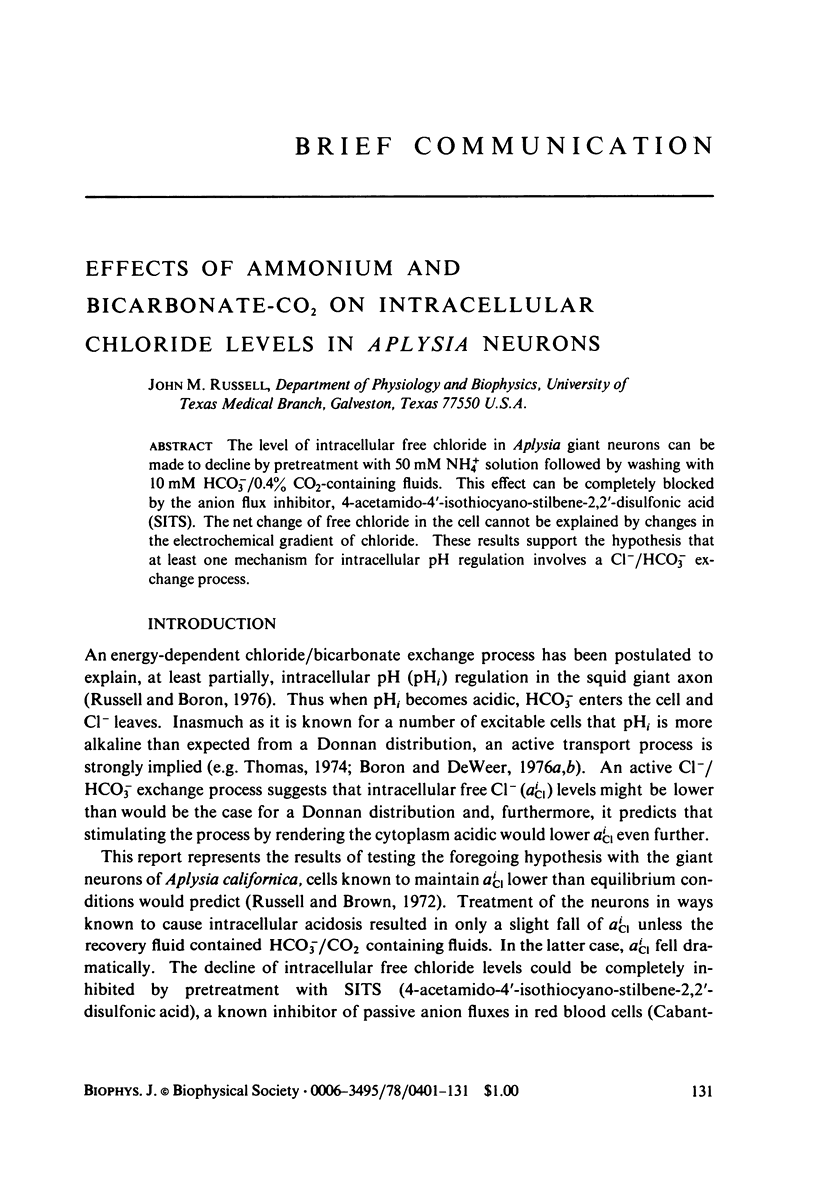
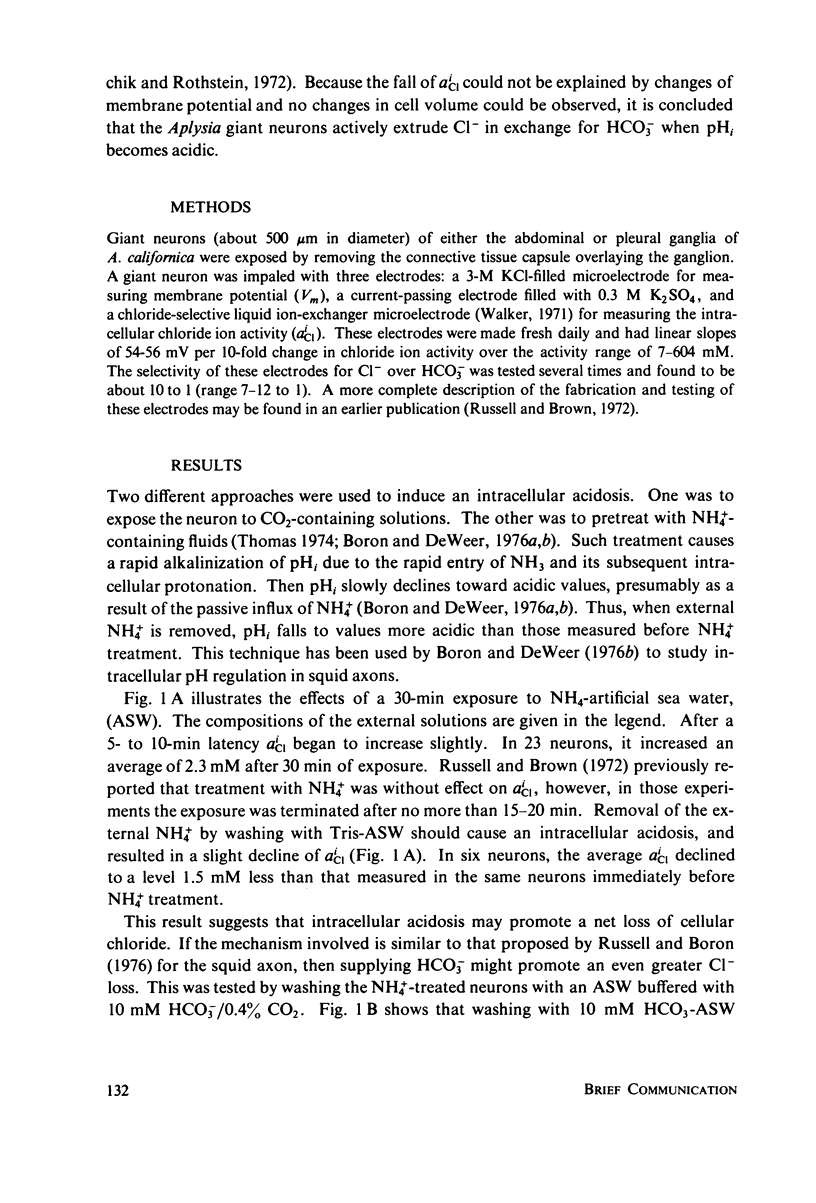
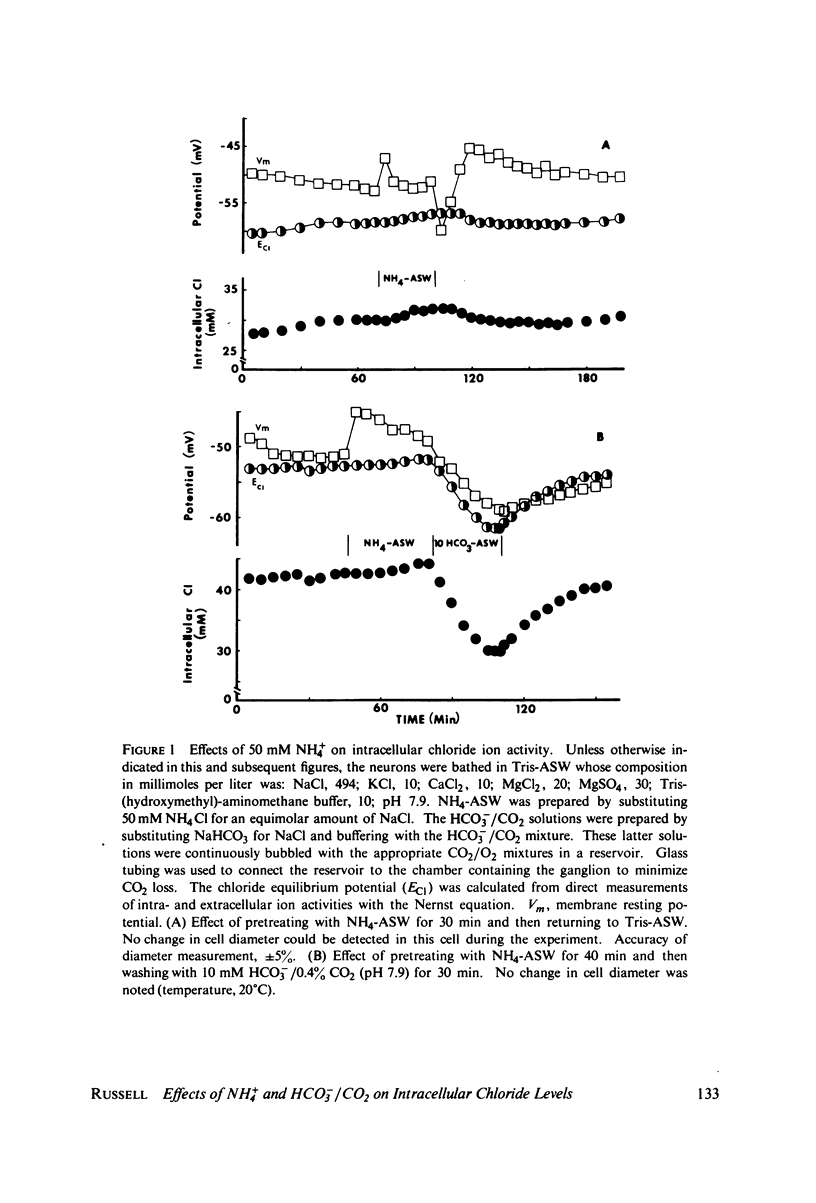
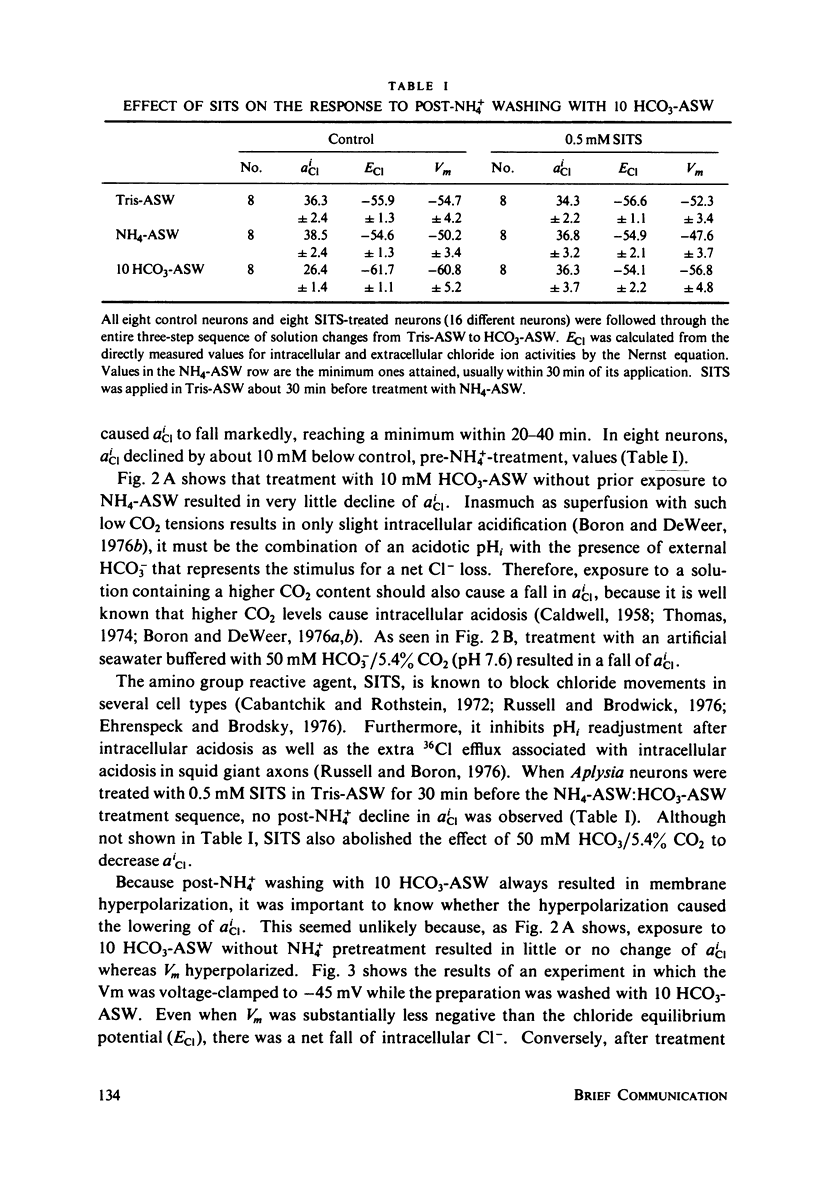
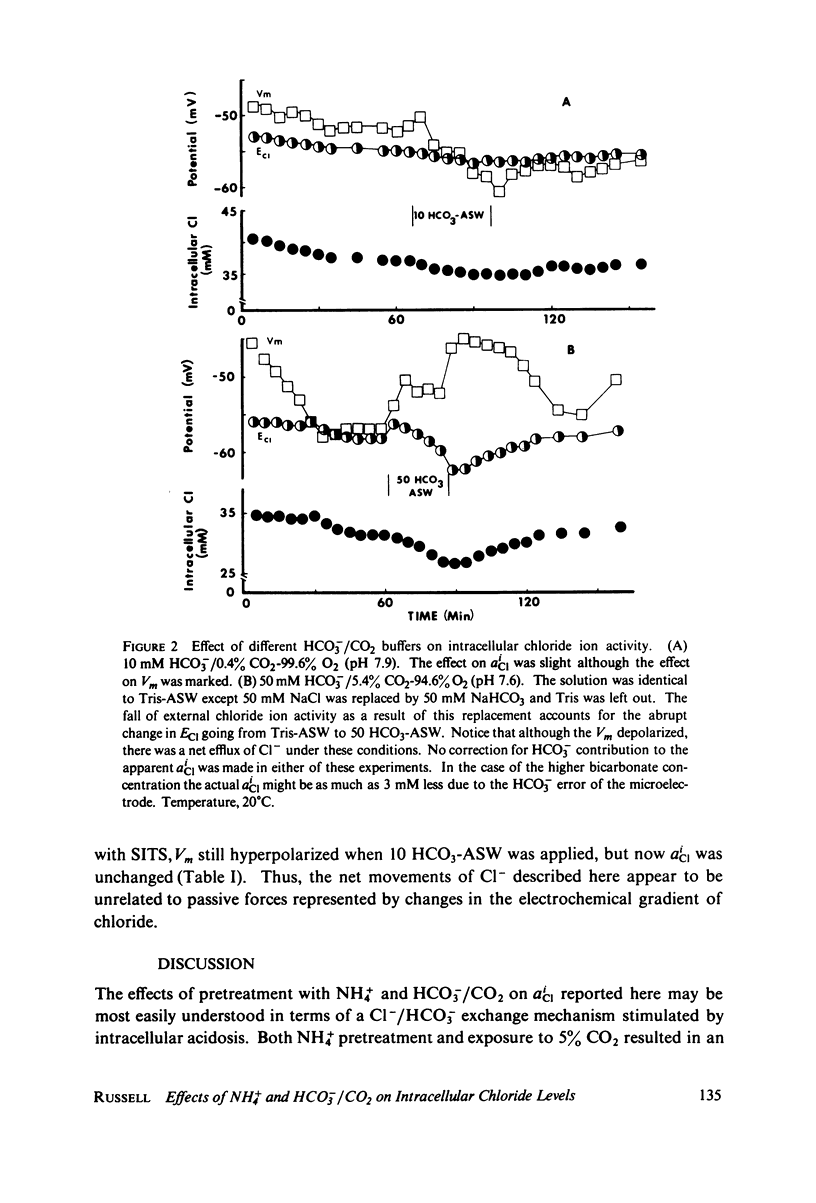
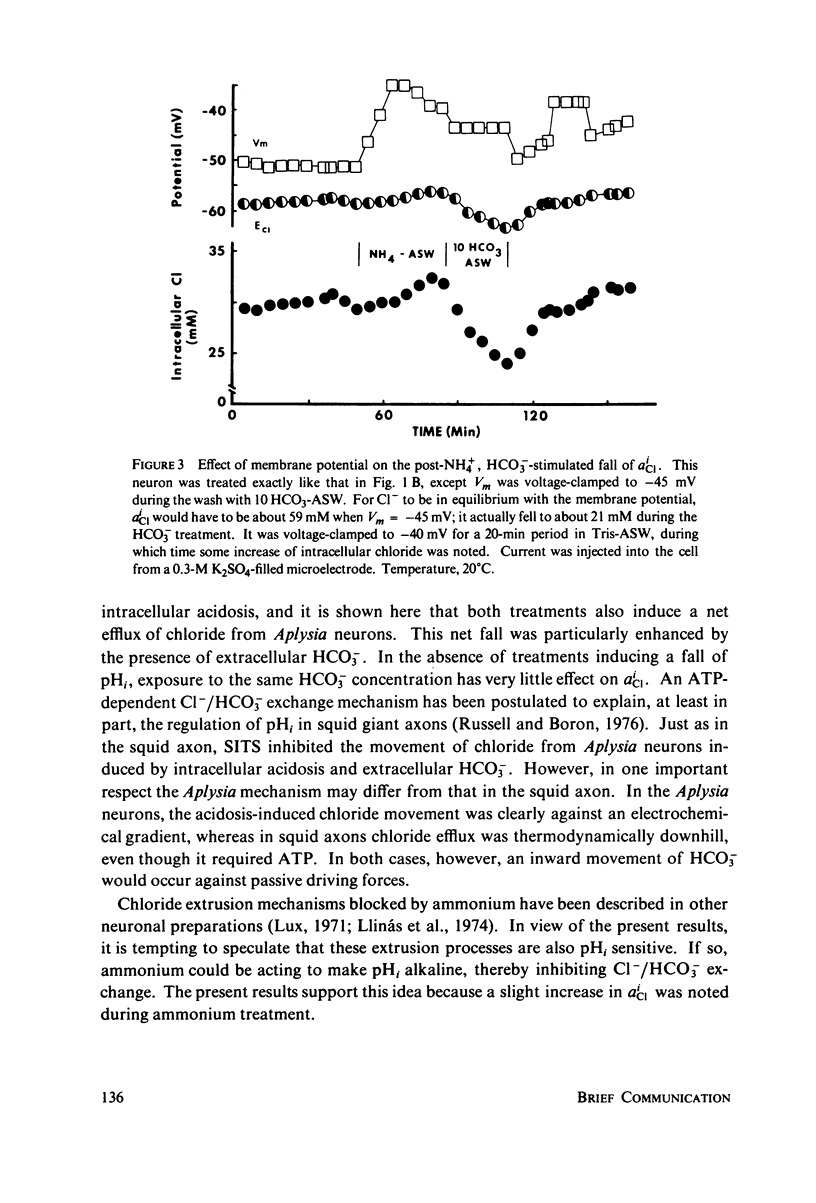
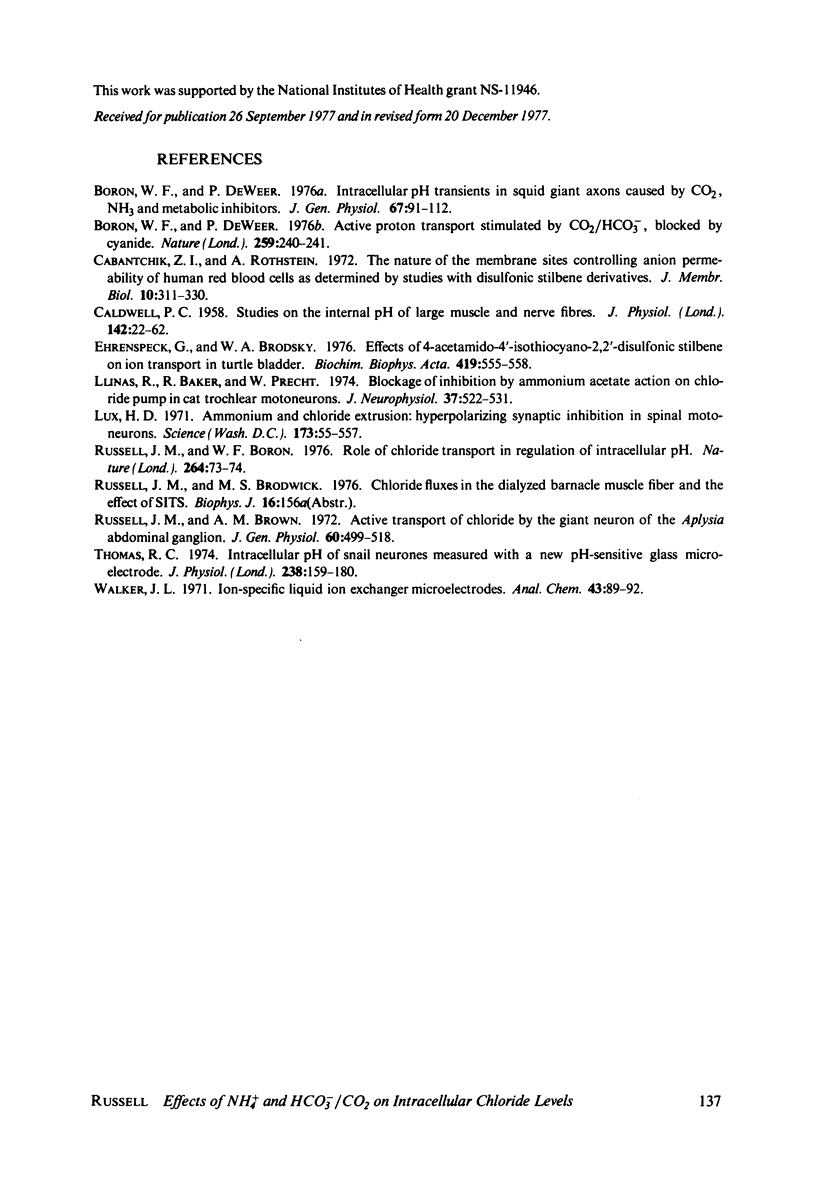
Selected References
These references are in PubMed. This may not be the complete list of references from this article.
- Boron W. F., De Weer P. Active proton transport stimulated by CO2/HCO3-, blocked by cyanide. Nature. 1976 Jan 22;259(5540):240–241. doi: 10.1038/259240a0. [DOI] [PubMed] [Google Scholar]
- Boron W. F., De Weer P. Intracellular pH transients in squid giant axons caused by CO2, NH3, and metabolic inhibitors. J Gen Physiol. 1976 Jan;67(1):91–112. doi: 10.1085/jgp.67.1.91. [DOI] [PMC free article] [PubMed] [Google Scholar]
- CALDWELL P. C. Studies on the internal pH of large muscle and nerve fibres. J Physiol. 1958 Jun 18;142(1):22–62. doi: 10.1113/jphysiol.1958.sp005998. [DOI] [PMC free article] [PubMed] [Google Scholar]
- Cabantchik Z. I., Rothstein A. The nature of the membrane sites controlling anion permeability of human red blood cells as determined by studies with disulfonic stilbene derivatives. J Membr Biol. 1972 Dec 29;10(3):311–330. doi: 10.1007/BF01867863. [DOI] [PubMed] [Google Scholar]
- Ehrenspeck G., Brodsky W. A. Effects of 4-acetamido-4'-isothiocyano-2,2-disulfonic stilbene on ion transport in turtle bladders. Biochim Biophys Acta. 1976 Feb 6;419(3):555–558. doi: 10.1016/0005-2736(76)90268-6. [DOI] [PubMed] [Google Scholar]
- Llinas R., Baker R., Precht W. Blockage of inhibition by ammonium acetate action on chloride pump in cat trochlear motoneurons. J Neurophysiol. 1974 May;37(3):522–532. doi: 10.1152/jn.1974.37.3.522. [DOI] [PubMed] [Google Scholar]
- Lux H. D. Ammonium and chloride extrusion: hyperpolarizing synaptic inhibition in spinal motoneurons. Science. 1971 Aug 6;173(3996):555–557. doi: 10.1126/science.173.3996.555. [DOI] [PubMed] [Google Scholar]
- Russell J. M., Boron W. F. Role of choloride transport in regulation of intracellular pH. Nature. 1976 Nov 4;264(5581):73–74. doi: 10.1038/264073a0. [DOI] [PubMed] [Google Scholar]
- Russell J. M., Brown A. M. Active transport of chloride by the giant neuron of the Aplysia abdominal ganglion. J Gen Physiol. 1972 Nov;60(5):499–518. doi: 10.1085/jgp.60.5.499. [DOI] [PMC free article] [PubMed] [Google Scholar]
- Thomas R. C. Intracellular pH of snail neurones measured with a new pH-sensitive glass mirco-electrode. J Physiol. 1974 Apr;238(1):159–180. doi: 10.1113/jphysiol.1974.sp010516. [DOI] [PMC free article] [PubMed] [Google Scholar]


